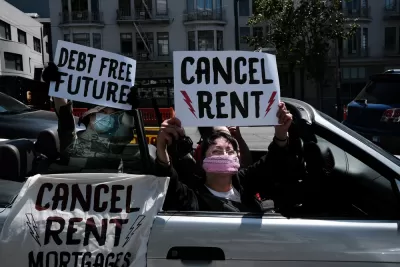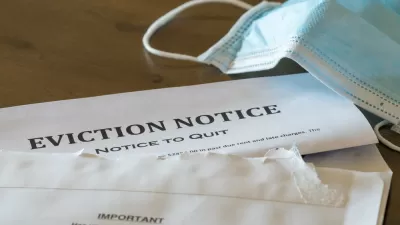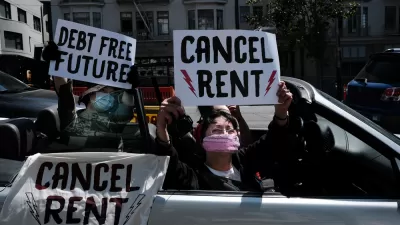The effects of the pandemic economic shutdown on the rental market have been far lower than feared—at least at aggregate, not individual, levels. Is an eviction moratorium the most helpful tool at this point in the pandemic?

An article by Michael Hendrix suggests that the likelihood of an "eviction tsunami" is low, and that the federal government's eviction moratorium, ordered by the Centers for Disease Control and Prevention (CDC) and extended by the Biden administration until the end of July, actually did very little to stem evictions during the past year and a half.
The ineffectiveness of the CDC's eviction moratorium, however, might suggest that the rental market is not on the verge of a complete meltdown, as many advocates (and this author) have worried since the outset of the pandemic.
"The market and generous government aid seem to have done far more to avert an eviction crisis than the various moratoria on the books," writes Hendrix. Meanwhile the economic ice of the pandemic is thawing. "Renters are more confident in their housing security than even a few months ago, according to a new analysis by Zillow, and in contrast to the unmet fear of 30 to 40 million evictions last year, the number at risk of eviction today is closer to 2.7 million."
Though renters of color suffered disproportionate impacts in the pandemic rental market, "this is a case for financial aid more than for a blunt, crisis-induced eviction moratorium," writes Hendrix. "Helping renters receive financial aid and get better terms from property owners would do far more to avert painful evictions."
FULL STORY: Do We Really Need a Moratorium on Evictions?

Planetizen Federal Action Tracker
A weekly monitor of how Trump’s orders and actions are impacting planners and planning in America.

Map: Where Senate Republicans Want to Sell Your Public Lands
For public land advocates, the Senate Republicans’ proposal to sell millions of acres of public land in the West is “the biggest fight of their careers.”

Restaurant Patios Were a Pandemic Win — Why Were They so Hard to Keep?
Social distancing requirements and changes in travel patterns prompted cities to pilot new uses for street and sidewalk space. Then it got complicated.

Platform Pilsner: Vancouver Transit Agency Releases... a Beer?
TransLink will receive a portion of every sale of the four-pack.

Toronto Weighs Cheaper Transit, Parking Hikes for Major Events
Special event rates would take effect during large festivals, sports games and concerts to ‘discourage driving, manage congestion and free up space for transit.”

Berlin to Consider Car-Free Zone Larger Than Manhattan
The area bound by the 22-mile Ringbahn would still allow 12 uses of a private automobile per year per person, and several other exemptions.
Urban Design for Planners 1: Software Tools
This six-course series explores essential urban design concepts using open source software and equips planners with the tools they need to participate fully in the urban design process.
Planning for Universal Design
Learn the tools for implementing Universal Design in planning regulations.
Heyer Gruel & Associates PA
JM Goldson LLC
Custer County Colorado
City of Camden Redevelopment Agency
City of Astoria
Transportation Research & Education Center (TREC) at Portland State University
Camden Redevelopment Agency
City of Claremont
Municipality of Princeton (NJ)





























